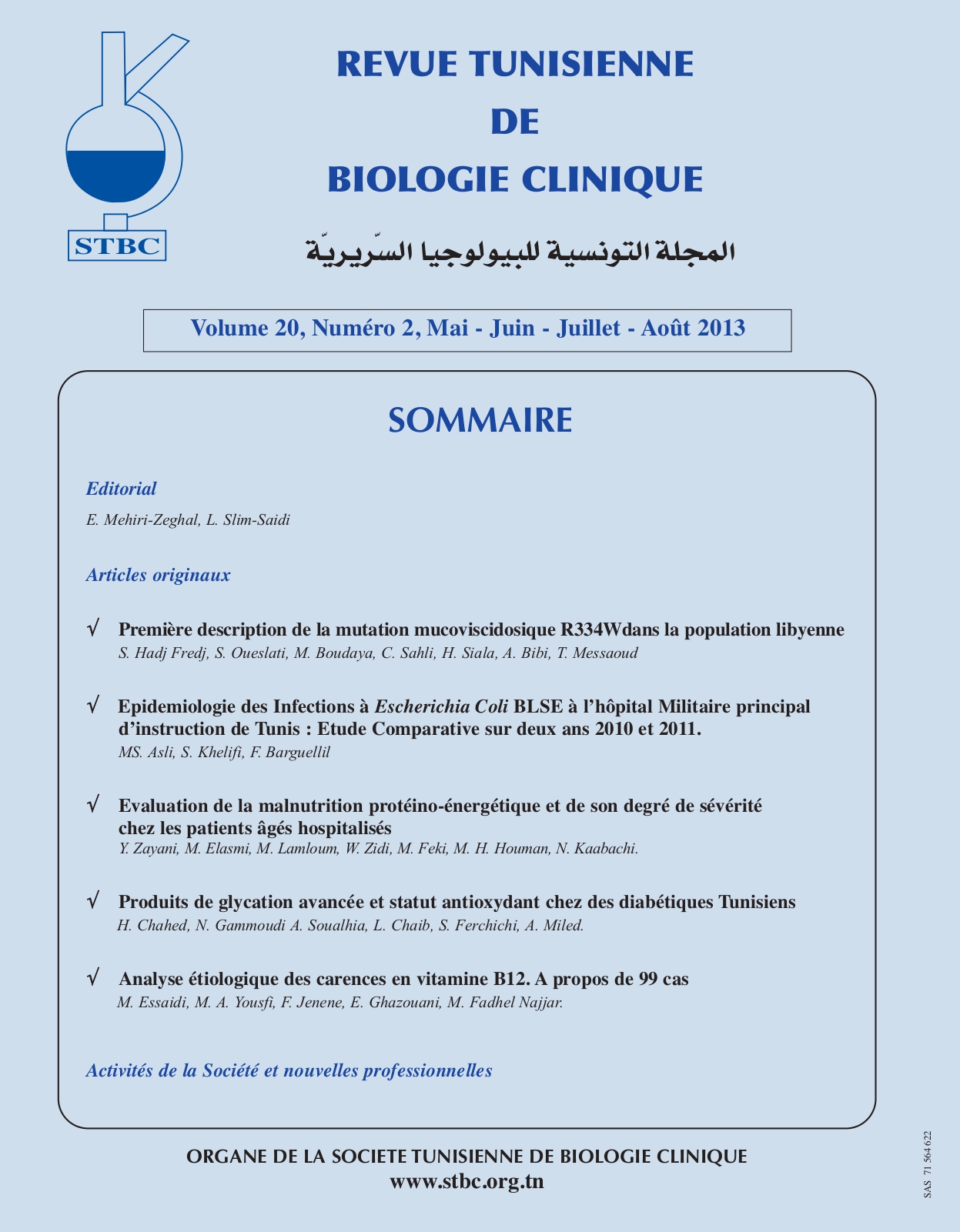Résumé
Des études récentes suggèrent que l’hyperglycémie chronique de diabète de type 2 est le principal acteur responsable des complications micro et macroangiopathiques. Parmi les altérations biochimiques caractéristiques de cette hyperglycémie figure la formation des produits de glycation avancée (AGEs) et la perturbation de la balance oxydants / antioxydants. Le but de ce travail était d’évaluer le taux des AGEs et le statut antioxydant (la superoxyde dismutase (SOD), la glutathion peroxydase (GPX), la gluthation réductase (GR), la catalase (CAT) et le statut antioxydant total (SAT)) chez des patients diabétiques de type 2 (DT2). Notre étude a concerné 70 patients DT2 d’âge moyen 42 ± 12 ans et 50 sujets témoins d’âge moyen 44 ± 10 ans. Nos résultats ont montré une élévation statistiquement significative des AGEs chez les DT2 comparé aux témoins (8,85 ± 2,05 103 vs 5,06 ±1,4 103 UA/g, p < 10-3). Nous avons aussi noté une élévation statistiquement significative des activités érythrocytaires antioxydantes (SOD, GPX, GR et CAT ; p < 0,05). Cependant, le SAT était statistiquement diminué chez les DT2 par rapport aux témoins (p = 0,001). L’augmentation des AGEs reflète un déséquilibre glycémique chronique, impliquée dans la genèse d’un stress oxydant qui est compensé par l’élévation des activités des enzymes antioxydantes.

Ce travail est disponible sous la licence Creative Commons Attribution 4.0 International .
(c) Tous droits réservés H. CHAHED, N. GAMMOUDI, A. SOUALHIA, L. CHAIB, S. FERCHICHI, A. MILED 2024

